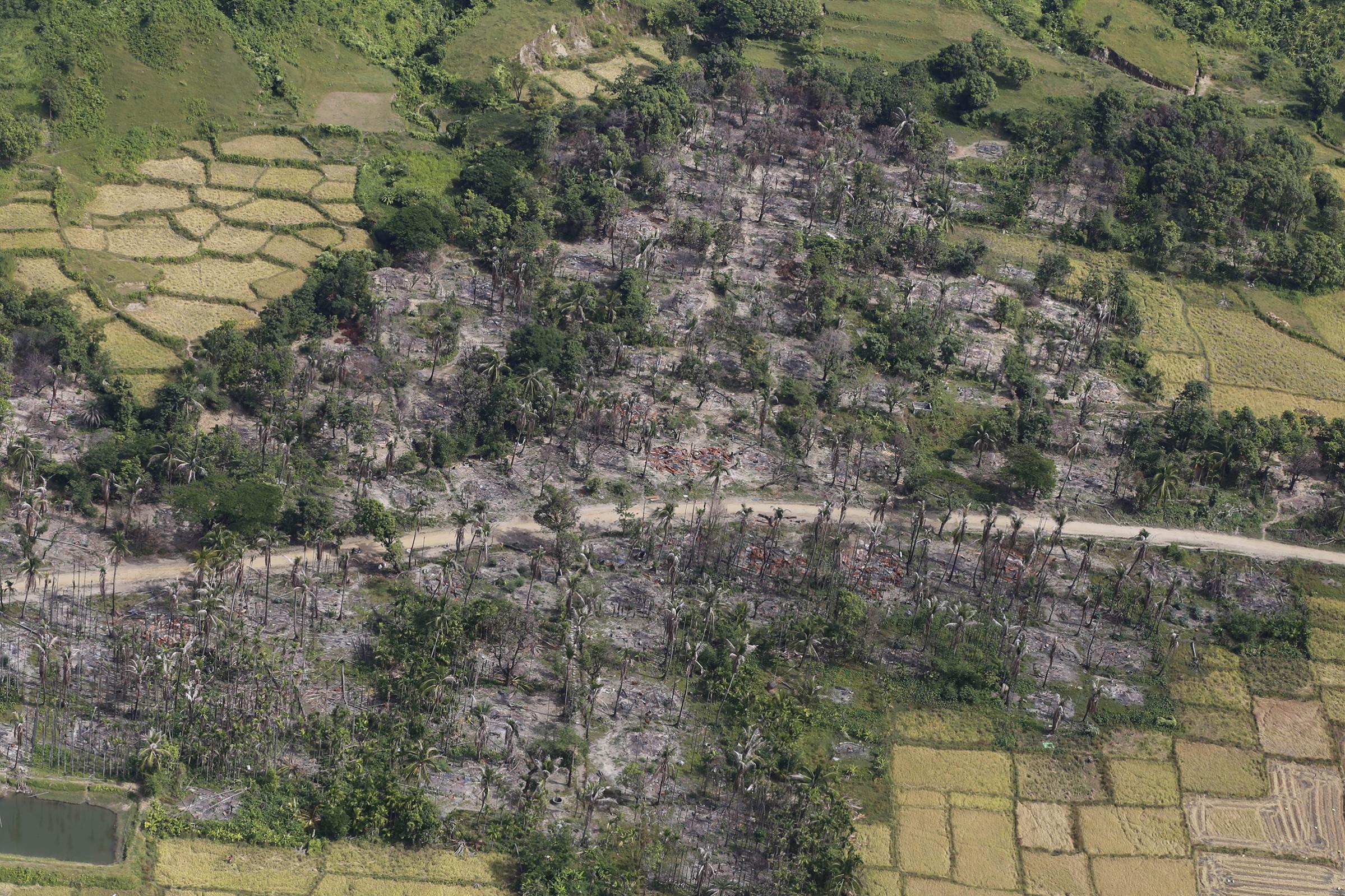In the weeks and months before hundreds of thousands of Rohingya civilians fled from Myanmar to Bangladesh, authorities had made “extensive and systematic preparations” for attacks on the Muslim minority, according to a human rights group.
A landmark report released Thursday by Bangkok-based Fortify Rights says there are “reasonable grounds” to believe that genocide and crimes against humanity were committed against the minority, implicating 22 Myanmar army and police officials in the chain of command. The group has called on the U.N. Security Council to refer the situation to the International Criminal Court (ICC) for criminal investigation.
“Genocide doesn’t happen spontaneously,” said Matthew Smith, Chief Executive Officer of Fortify Rights. “Impunity for these crimes will pave the path for more violations and attacks in the future. The world can’t sit idly by and watch another genocide unfold, but right now, that’s exactly what’s happening.”

The Rohingya are a persecuted and mostly stateless Muslim minority from Rakhine state in western Myanmar, a predominantly Buddhist country. After an insurgent group known as the Arakan Rohingya Salvation Army (ARSA) attacked state security forces on Aug. 25, 2017, the Myanmar military carried out brutal reprisals against Rohingya civilians characterized by murder, rape and arson. The crackdown forced more than 700,000 Rohingya to flee across the border into neighboring Bangladesh.
Fortify says that the campaign to expel them was not merely a response to the insurgent attack, as the dominant narrative holds, but that it was premeditated. The August ARSA attack was the second of its kind; the group’s first fatal ambush was carried out in October 2016, which the Myanmar military met with a brutal campaign of rape and extrajudicial killing that forced tens of thousands to flee.
Fortify suggests that the international community’s failure to effectively respond to the October violence may have emboldened security forces, who appear to have been poised and waiting for a second attack to trigger the group’s violent expulsion.
Read more: Myanmar’s Crisis, Bangladesh’s Burden: Among the Rohingya Refugees Waiting for a Miracle
Systematic preparations detailed in the report include the collection sharp or blunt objects from Rohingya civilians, training and arming local non-Rohingya cummunities, tearing down fencing and other structures around Rohingya homes, deliberately depriving Rohingya of food and life-saving aid to weaken them prior to attacks, and deploying unnecessarily high numbers of state security forces to northern Rakhine state.
The group says these actions resemble “preparatory actions” for genocide and crimes against humanity as outlined by the U.N.’s Framework for Analysis of Atrocity Crimes.
The report says attacks in northern Rakhine beginning in August 2017 were committed by at least 27 Myanmar Army battalions, comprising up to 11,000 soldiers and at least three combat police battalions. It also identifies 22 military and police officials as responsible and suggests they should face criminal investigation and possibly prosecution.
That list includes Commander-in-Chief Senior General Min Aung Hlaing, Deputy Commander-in-Chief Vice Senior General Soe Win, and the Joint Chief of Staff of the Army, Navy, and Air Force General Mya Tun Oo.
Last month, Amnesty International identified 13 Myanmar military and police officials as having a key role in violent crimes against the Rohingya. Just prior, the E.U. and Canada announced sanctions against seven senior Myanmar military officials accused of involvement in the campaign against the Rohingya.
More Must-Reads from TIME
- Caitlin Clark Is TIME's 2024 Athlete of the Year
- Where Trump 2.0 Will Differ From 1.0
- Is Intermittent Fasting Good or Bad for You?
- The 100 Must-Read Books of 2024
- Column: If Optimism Feels Ridiculous Now, Try Hope
- The Future of Climate Action Is Trade Policy
- FX’s Say Nothing Is the Must-Watch Political Thriller of 2024
- Merle Bombardieri Is Helping People Make the Baby Decision
Contact us at letters@time.com